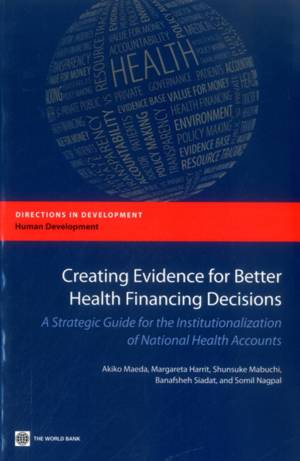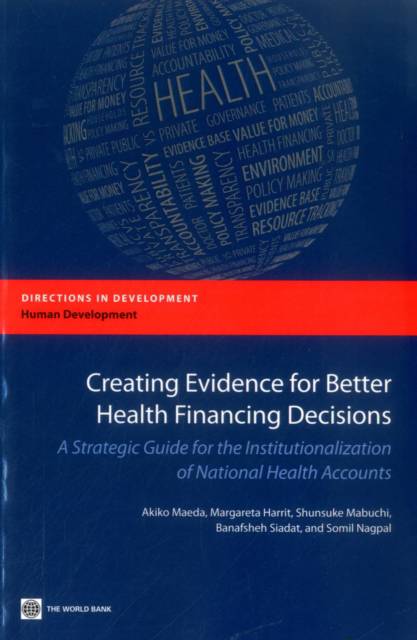
- Retrait gratuit dans votre magasin Club
- 7.000.000 titres dans notre catalogue
- Payer en toute sécurité
- Toujours un magasin près de chez vous
- Retrait gratuit dans votre magasin Club
- 7.000.0000 titres dans notre catalogue
- Payer en toute sécurité
- Toujours un magasin près de chez vous
Creating Evidence for Better Health Financing Decisions
A Strategic Guide for the Institutionalization of National Health Accounts
Akiko Maeda, Margareta Norris Harrit, Shunsuke Mabuchi
59,45 €
+ 118 points
Description
Any analysis of health financing issues has to begin with sound estimates of the level and flow of resources in a health system, including total levels of spending, the sources of health expenditures, the uses of funds in terms of services purchased, and in terms of who purchases them. The analysis should also aim at understanding how these resource flows are correlated with health system outcomes, including those of improving health, reducing health inequalities, and reducing the incidence of catastrophic health expenditure. National Health Accounts (NHA) provide a framework to collect, compile, and analyze such data on all types of health spending in a country-and so create a robust evidence base for policy making.
Spécifications
Parties prenantes
- Auteur(s) :
- Editeur:
Contenu
- Nombre de pages :
- 320
- Langue:
- Anglais
- Collection :
Caractéristiques
- EAN:
- 9780821394694
- Date de parution :
- 01-05-12
- Format:
- Livre broché
- Format numérique:
- Trade paperback (VS)
- Dimensions :
- 152 mm x 229 mm
- Poids :
- 512 g

Les avis
Nous publions uniquement les avis qui respectent les conditions requises. Consultez nos conditions pour les avis.






